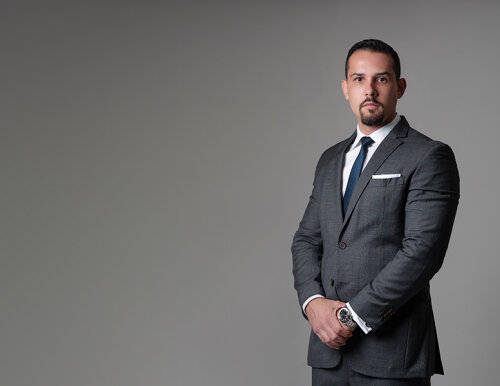Best Franchising Lawyers in Brazil
Share your needs with us, get contacted by law firms.
Free. Takes 2 min.
Or refine your search by selecting a city:
List of the best lawyers in Brazil
About Franchising Law in Brazil
Franchising in Brazil is a well-established commercial practice regulated under the Brazilian Franchise Law (Law No. 13.966/2019). This law establishes specific guidelines and requirements that franchisors must follow, including the obligation to provide a comprehensive Franchise Disclosure Document (FDD) to prospective franchisees before any agreements are finalized. The Brazilian market is diverse, with opportunities across various sectors such as food and beverage, retail, and services. Understanding the legal framework is crucial for both franchisors and franchisees to ensure compliance and protect their investments.
Why You May Need a Lawyer
Engaging with a skilled lawyer in franchising can be critical for several reasons. Here are common situations where legal advice may be needed:
- Drafting and Reviewing Agreements: Ensuring all contractual documents, such as franchise agreements and FDDs, comply with Brazilian laws and protect your interests.
- Negotiation Support: Lawyers can negotiate terms with franchisors or franchisees to ensure fair and balanced agreements.
- Legal Disputes: Handling conflicts that may arise during the operation of the franchise, such as termination, breach of contract, or misrepresentation issues.
- Intellectual Property Protection: Ensure that trademarks and branding materials are correctly registered and protected to avoid infringement.
- Regulatory Compliance: Guides businesses in adhering to local laws and regulations, avoiding penalties or legal actions.
Local Laws Overview
The legal framework surrounding franchising in Brazil is primarily governed by Federal Law No. 13.966 of 2019. Key aspects of this law include:
- Franchise Disclosure Document (FDD): Must be delivered at least 10 days prior to any agreements with potential franchisees, detailing all aspects of the franchise relationship.
- No Employment Relationship: The franchise relationship does not constitute an employment arrangement, protecting franchisors from labor-related obligations.
- Trade Secrets and IP Rights: Clear guidelines on protecting intellectual property and trade secrets.
- Dispute Resolution: Encourages parties to state the preferred method of dispute resolution within their agreement.
Frequently Asked Questions
What is the minimum information that must be included in the FDD?
The FDD must include detailed information such as the history of the franchise, financial requirements, intellectual property rights, terms of the franchise agreement, and any previous legal disputes involving the franchisor.
How long does the FDD need to be provided before signing the agreement?
The FDD must be provided at least 10 days prior to signing any binding contracts.
Can a franchisee terminate a franchise agreement early?
Early termination is possible but typically involves agreed-upon penalties or specific conditions outlined in the franchise agreement.
Is it necessary to incorporate a business to become a franchisee in Brazil?
Yes, most franchise systems require the franchisee to operate as a corporate entity rather than as an individual.
Are franchise fees regulated by Brazilian law?
While there's no explicit regulation on the amount, all fees must be clearly disclosed in the FDD.
Do franchisors need to register their franchise systems with an authority in Brazil?
No, there is currently no requirement for franchisors to register franchise systems with the government.
Is mediation or arbitration available for franchise disputes in Brazil?
Yes, franchise agreements commonly include clauses specifying mediation or arbitration as preferred dispute resolution methods.
Are there specific laws regulating foreign franchisors?
While no specific laws for foreign franchisors exist, they must comply with Brazilian Franchise Law, and potential additional regulations might apply depending on the sector.
Can the FDD be provided in English?
Though legally acceptable, it is recommended to provide the FDD in Portuguese for clarity and understanding.
What happens if the franchisor provides false information in the FDD?
The franchisee may seek termination of the agreement and potential compensation for damages incurred due to the false information.
Additional Resources
For further assistance, consider reaching out to the following resources:
- Brazilian Franchise Association (ABF): Offers guidelines, forums, and support for franchising in Brazil.
- Instituto Nacional da Propriedade Industrial (INPI): For trademark registration and intellectual property inquiries.
- Local Chambers of Commerce: Can provide networking opportunities and local insights into the franchising market.
Next Steps
If you require legal assistance in franchising, consider reaching out to specialized franchising lawyers who are well-versed in Brazilian laws. Arrange consultations to discuss your specific needs, evaluate potential lawyers based on experience and expertise, and ensure that they clearly understand your business goals. Starting with a legal consultation can help identify potential challenges and create a pathway for a successful franchising journey in Brazil.
Lawzana helps you find the best lawyers and law firms in Brazil through a curated and pre-screened list of qualified legal professionals. Our platform offers rankings and detailed profiles of attorneys and law firms, allowing you to compare based on practice areas, including Franchising, experience, and client feedback.
Each profile includes a description of the firm's areas of practice, client reviews, team members and partners, year of establishment, spoken languages, office locations, contact information, social media presence, and any published articles or resources. Most firms on our platform speak English and are experienced in both local and international legal matters.
Get a quote from top-rated law firms in Brazil — quickly, securely, and without unnecessary hassle.
Disclaimer:
The information provided on this page is for general informational purposes only and does not constitute legal advice. While we strive to ensure the accuracy and relevance of the content, legal information may change over time, and interpretations of the law can vary. You should always consult with a qualified legal professional for advice specific to your situation.
We disclaim all liability for actions taken or not taken based on the content of this page. If you believe any information is incorrect or outdated, please contact us, and we will review and update it where appropriate.
Browse franchising law firms by city in Brazil
Refine your search by selecting a city.














